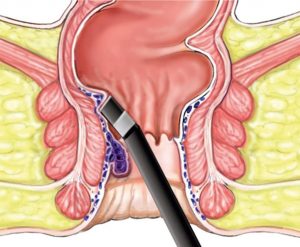



Fissura: It is an intense or long-lasting hole, or cracks develop in the anal region. These cracks can cause sharp pain and strain during bowel movement. The disease is common in men and women.
Fistula: An anal fistula is an abnormal tract connecting internally from rectum or anal canal to externally with skin near anus. As mentioned above it is an abnormal tract; some part of fecal matter pass through this abnormal path. A fistula maybe the result of an anal abscess or trauma or Fissura which does not healed completely and appears just below the anal skin
Pilonidal Sinus: In this condition, a tiny tunnel emerges in the buttocks, i.e., in the clefts of the anal area. Pilonidal sinus holds hairs, dirt, and debris. The condition is common for men, young adults and those who sit for a long time, e.g., drivers
The primary treatment for anal Fissura consists of the use of creams to relax your muscle, lifestyle modifications, and some other methods. If these treatments don’t work, then you may require surgery to relax your sphincter muscle or to remove the damaged skin.
A fistulotomy is an abnormal tract excision(removal)procedure, requires an hour. In this procedure, the doctor surgically opens the fistula tract by making excision.
In this procedure, the doctor identifies the inner opening of the fistula and cut the flap of mucosal tissue surrounding the opening. The flap is lifted to open the fistula; then we clean the tract and close the inner hole. After cutting the end of the flap on which the inner opening was, the flap is pulled down over the stitched internal opening and sutured in place. The visible crack is cleaned and sutured.
It is a secure closure method of the internal opening. The technique removes infected cryptoglandular tissue through the intersphincteric approach. The procedure includes the cut at the intersphincteric groove.